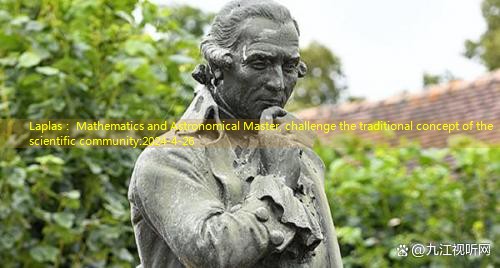In the long river of mathematics and astronomy in France, Pierre-Simon Laplace is undoubtedly a bright star.He was born in 1749 and grew up in a wealthy businessman family, but the businessman’s son chose a different path, became a mathematician, and left a deep mark in the mathematical world.
Laplas’s talent and talent were recognized in their early years.When studying at Kaine University, he met two outstanding mathematics professors, Klisdov Gabul and Pierre Le Kanu, who became the mentor of Raplaz and led him to mathematics.Hall.Laplas’s talent was further recognized. When he personally visited the famous mathematician Dalang Bell, although he was treated coldly at first, he won the appreciation of Dalang Bell with deep mathematics and at the Paris Military AcademyGet the position of teacher.

Lapras’s achievements are not limited to teaching, but his research has a profound impact on the field of mathematics and astronomy.One of his most famous contributions is to accurately calculate the planet and his satellite movement.In a century after Isaac Newton, the scientific community generally accepted Newton’s view that the stability of the solar system requires God’s intervention.However, through his research, Laplas successfully revealed the stability of the solar system that was not intervened by God, and this discovery completely changed the traditional concept of the scientific community.
In addition to astrophysics, Laplas also made outstanding contributions in the field of probability theory.His book “Théorie Analytique des Probabilités” is known as one of the most influential works in the field of probability.In this book, Laplas laid the foundation of probability theory and applied it to practical problems, such as mortality, marriage duration, and expected life span.His famous saying about probability: “Probability theory is essentially simplifying common sense into calculus.” It is also a classic language in the field of probability theory.
Rapras’ thoughts and achievements are not limited to mathematics and astronomy, but his views have also triggered philosophical discussions on decisive theory.In his “Philosophy of Probability” published in 1814, he proposed a discussion on the state of the universe, arguing that a sufficiently wise existence can know the power and elemental position of all natural movements, so as to predict the future.Although Lapras himself did not use the word “demon”, his view was called “Laplaz’s demon” in later generations and became one of the important representatives of decision theory.
Report/feedback

